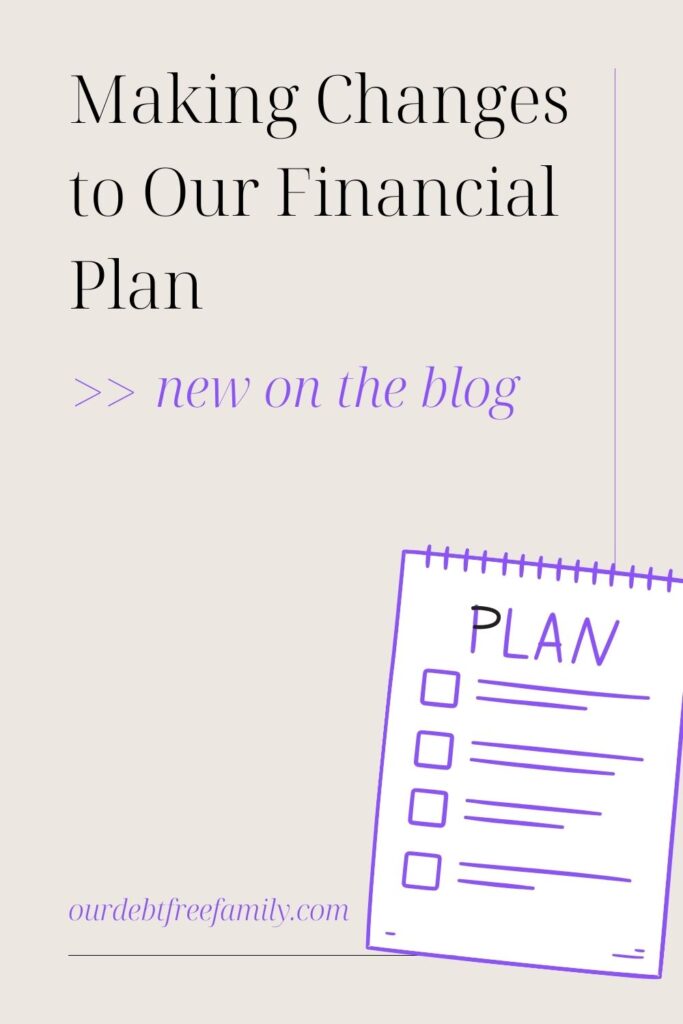What do I do when my spouse spends too much?
How do I keep my spouse on track?
I hear these questions all the time.
If you’re married or in a committed relationship, then you know that there are a lot of complexities involved when two lives join together.
Your two paths must move in the same direction with similar values, lifestyles, and goals for your future.
While all of your interests don’t need to be exactly the same, the direction you’re both heading in life must follow a similar trajectory.
Of course, there are always exceptions to every rule, but most long-term relationships can’t foresee a future together if one person wants to live in the hustle and bustle of New York City while the other person has their heart set on raising a family in the quiet plains of Montana.
As is the case if you want to live a life of debt freedom and your partner wants to continue living above their means, relying on debt to fund their lifestyle. Those two worlds are not aligned.
Being out of alignment with your spouse in such a huge area of life as financial goals can create a lot of tension, to say the least.
That’s why fighting about money is the top predictor of divorce.
Here are four strategies that you can use if you’re completely committed to kicking debt to the curb, but your spouse is sabotaging any progress you make by spending whatever he wants whenever he wants.
1. Make sure that you’re on the same page.
If you and your spouse haven’t agreed on your current financial goals, then review my article on how to get your spouse on board. Follow those steps to come to an agreement on where your financial life is headed.
2. Make sure that you’re giving him a chance to provide input.
Because I love numbers and spreadsheets, my husband is more than willing to let me run with creating our budget and then tell him how much we have to spend on things.
But he needs to have some ownership of the process too.So each month when I create our budget, I always show him the numbers that I came up with and explain any areas that are different from the previous month. I ask him for his input on what those amounts should be and explain how I came up with the numbers I chose. I always ask if he agrees, and since we’ve been doing this for so long, a lot of times, he does, but there are still times that he changes the numbers.And that is perfectly okay.
Instead of arguing my reasoning further, I agree to his numbers because I WANT him to be part of the process. I don’t want him to think his opinion doesn’t matter because I know that having him share ownership of the budget is more important than a $10 or $20 discrepancy in a spending category.
3. Make sure that you both have spending money built into your budget, and of course, that you AGREE on those amounts.
Whether you come up with a weekly, monthly, or an annual amount, make sure that you both explicitly agree to those amounts AND that you agree on what comes OUT of those amounts.For example, our spending money is used for when we want to buy ourselves something that isn’t included in other categories of the budget like a new gadget for my husband or a mani/pedi for me. Oftentimes, it’s our coffee or lunch money when we’re out by ourselves.I’ve heard time and time again from moms that they often use their spending money to buy things for their kids or someone else. So if you find that you’re using your spending money to buy things for someone else, then consider whether those purchases should be included in another category in your budget, such as gifts. For us, anything we purchase for someone else (even our kids) comes out of our gifts budget
4. Set up a reward system to keep you and your partner on track.
For example, I spoke with a woman whose husband would occasionally buy expensive sports equipment, even though it wasn’t in their budget.He worked hard for his money, and they both felt he “deserved” it, but it was throwing their plan to become debt-free in a few years off track, and it was causing her to have growing resentment because she was doing a better job of sticking to the plan and avoiding “splurges.”I suggested that she have a conversation with her husband about their common goal to become debt-free and set up a reward system. They could add a savings category to their budget for her husband’s sports equipment and add to it each month.
Or they could agree that once they paid off their next debt or reached their next milestone on their journey, he could buy his next piece of sports equipment then. I also suggested that she have some sort of reward at each milestone, too.
Doing so will keep them both moving forward toward their goals and satisfied that they’re making a point to enjoy their money, as well.
She’ll have peace of mind that they’re making progress, and he’ll no longer be sabotaging their hard work.
[bctt tweet=”Set up a reward system to keep you and your partner on track with your #budget.” username=”MonicaRLouie”]
If you follow these strategies, and your spouse is still spending too much, then review your budget categories and make sure the amounts are realistic.
Even if you both agree on the amounts, you might be trying to be too stringent. It’s better to loosen up a bit on the numbers and extend your payoff date by a few months than to get discouraged and give up entirely.
I truly believe that working together on your goal of becoming debt-free will bring you and your spouse closer and make your marriage stronger. I’ve seen it happen in my marriage, and I’ve heard the same from my clients.
Now I’d love to hear about you!
Have you experienced one partner in your relationship spending too much? How did you deal with it? What advice do you have for those in this situation? Please share in the comments below.
Have you joined our free private community on Facebook yet?
I invite you to join me in our private Facebook group called Your Debt Freedom Family, where we share more tips like this. We’ve got a fantastic community of people who are kicking debt to the curb so they can break free and live life on their terms.
We’d love to see you there!
Keep moving forward toward your goals. You really can live the life you dream about!


